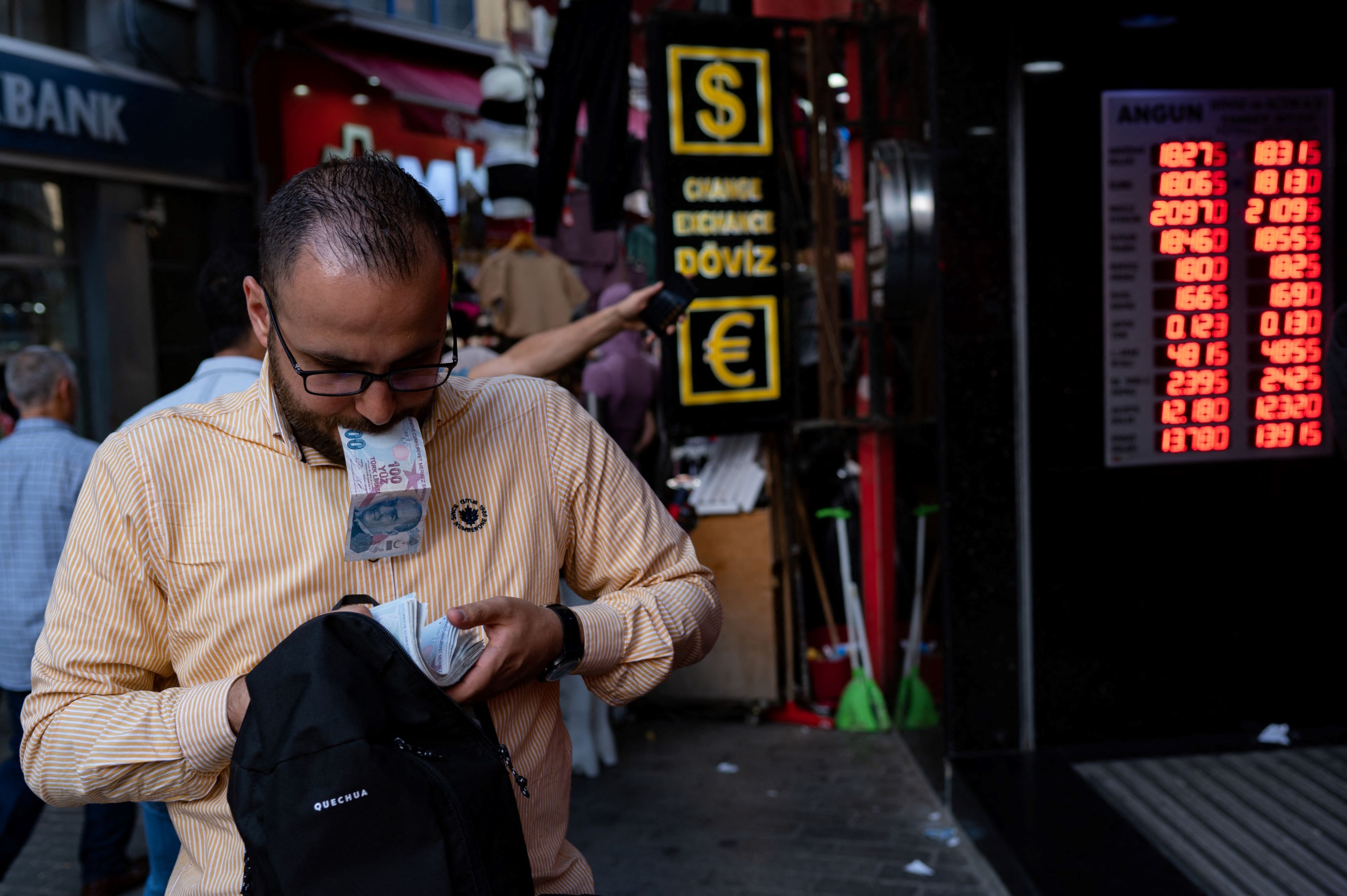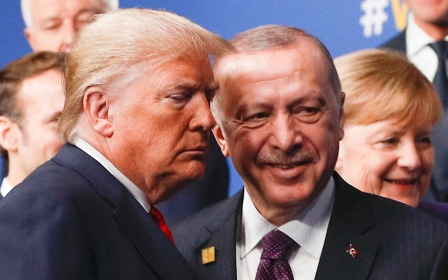Turkey: Lira drops to record low in wake of election

Turkey's lira dropped to an all-time low of 20.36 against the dollar as markets reacted to President Recep Tayyip Erdogan's re-election on Sunday.
Yet, even as the currency weakened for a sixth straight day, shares in Turkey rallied by nearly 10 percent, apparently buoyed by the end of uncertainty over the election.
The country had already been in the grip of a severe financial crisis prior to the beginning of elections on 14 May, which some had predicted could see Erdogan removed in favour of opposition leader Kemal Kilicdaroglu.
The lira has shed more than 90 percent of its value over the past decade as the country has been hit by soaring inflation, a problem triggered and exacerbated by Erdogan's unorthodox policy of cutting interest rates, which has also driven away foreign investors.
More than $27bn in foreign currency reserves have been burned through since the end of 2022 as the government sought to prop up its currency and finance its enormous current account deficit.
New MEE newsletter: Jerusalem Dispatch
Sign up to get the latest insights and analysis on Israel-Palestine, alongside Turkey Unpacked and other MEE newsletters
Many observers have been watching to see if Erdogan will return to a more mainstream economic policy following the vote, similar to what he had pursued in the first decade and a half of the century.
On Monday, it was reported that Erdogan had met with Mehmet Simsek, a former deputy prime minister who had previously been his economy tsar.
Simsek, former chief economist for the Europe, Middle East and Africa region at Merrill Lynch, is seen as a safe pair of hands by analysts and someone who will encourage markets and investors.
However, there has been no official suggestion that Simsek will be returning to Erdogan's team.
In his victory speech on Sunday, Erdogan promised he would continue to cut interest rates, reiterating his claim - rejected by mainstream economists - that lower interest rates would reduce inflation.
"If anyone can do this, I can do it," he said.
"[The central bank's main policy rate] has now been reduced to 8.5 percent and you'll see inflation will also fall."
Middle East Eye delivers independent and unrivalled coverage and analysis of the Middle East, North Africa and beyond. To learn more about republishing this content and the associated fees, please fill out this form. More about MEE can be found here.





